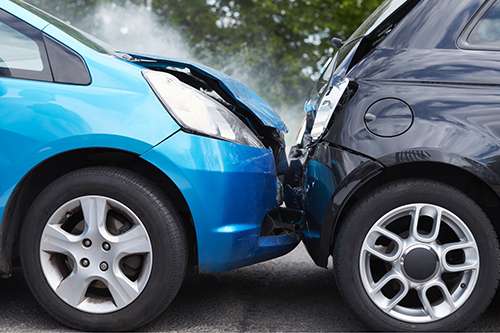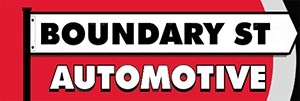At our Townsville workshop, our mechanics often see vehicles where owners have ignored their brake service or inspection. Ensuring the brake operation and brake parts in your car, 4wd, SUV, or trailer are in their best condition is paramount to safeguarding yourself, your passengers, and other road users.
Unusual noises, strange vibrations, or a soft brake pedal are all warning signs that your brakes may be wearing down and require urgent brake servicing.

Ignoring brake issues can lead to increased stopping distances, decreased brake performance, and potential safety hazards. The last thing you need is brake failure in traffic or on the highway.
Brake Squealing or Grinding Noises
Squealing, whining, and unusual grinding noises when apply the brakes typically stem from two primary sources: worn brake pads and damaged brake rotors.
Worn Brake Pads: Brake pads feature a wear indicator, a small metal tab that contacts the rotor when the pads wear down to a certain level. This contact makes a high pitched audible warning sound that indicates it’s time to replace the brake pads. Ignoring this warning can lead to metal on metal contact, resulting in severe damage to the brake system.
Damaged Brake Rotors: Grinding noises indicate advanced brake wear, particularly damage to the brake rotors. When brake pads wear down completely, the metal backing plate comes into contact with the rotor, causing a grinding sound. The contact can lead to irreversible damage to the rotors.
Wheel Vibrations or Brake Pulsations
Wheel vibrations or brake pulsations are often unsettling experiences for drivers. The root causes behind these issues are crucial for maintaining vehicle safety and driving comfort.
Wheel Vibrations: This refers to the sensation of oscillation or shaking felt through the steering wheel, floorboard, or seat while driving. These vibrations can stem from various sources such as tyres, suspensions, or brake system issues. When vibrations occur mainly during braking it is often related to the brake system.
Brake Pulsations: These are rhythmic sensations felt through the brake pedal or steering wheel when applying the brakes. It typically indicates uneven brake rotor surfaces, commonly referred to as “warped” rotors. This occurs due to uneven heat distribution during braking, leading to distortions in the rotor’s surface. Factors such as aggressive driving and prolonged braking can contribute to rotor warping over time.
Soft or Spongy Brake Pedal
A soft or spongy brake pedal often manifests as a lack of firmness or resistance when applying pressure. Instead of a solid pedal feel, drivers experience a mushy sensation, sometimes accompanied by excessive pedal travel or a delayed response. These symptoms vary in severity, ranging from a subtle softness to a poor responsiveness that compromises braking confidence.
Air in the Brake Lines: Air bubbles trapped within the brake lines can compress under pressure, resulting in a soft pedal feel, comprised braking, and severe safety risks while driving. Flushing the brake fluid, also known as bleeding the brakes, removes of the air from the brake system.
Brake Fluid Leaks: Loss of brake fluid due to leaks in the brake system can lead to a decrease in hydraulic pressure, causing a spongy pedal. It requires a brake inspection as soon as possible.
Worn Brake Components: Degraded brake pads, worn brake calipers, or deteriorating brake hoses can contribute to pedal softness by reducing the efficiency of the braking system.
Contaminated Brake Fluid: Moisture or contaminants in the brake fluid can compromise its integrity, leading to reduced hydraulic performance. It can cause brake malfunction, brake lockup, poor stopping distance or total brake failure.

Dashboard Brake Warning Lights
Modern vehicles are equipped with sophisticated onboard diagnostics systems that monitor various components, including the brake system. When a problem is detected, specific dashboard warning lights illuminate to alert the driver. For brake issues, the most common warning lights include the brake system warning light, ABS (Anti-lock Braking System) warning light, and brake fluid warning light.
ABS Warning Light: This dashboard warning light typically resembles the letters “ABS” inside a circle or a similar symbol. This signifies a problem with the Anti-lock Braking System, which helps prevent wheel lock up during hard braking. This light often indicates issues with ABS sensors, hydraulic pump failures, or electronic control module malfunction. While the brakes may still function without ABS, it’s essential to have a qualified mechanic address the issue to maintain optimal braking performance and safety.
Brake Warning Light: This brake light resembles an exclamation mark inside a circle and indicates low brake fluid levels, leaks in the brake system, or imminent brake system failure. Loss of hydraulic brake pressure to the brakes and low levels compromise braking ability. It’s crucial that brake light issues be repaired promptly to prevent brake failure and potential accidents.
Parking Brake Light: Warning signs of parking brake failure may include increased slack where the parking brake lever feels loose, ineffective holding where the car moves when the park brake is engaged, and unusual noises or a burning smell when the car is driven. These all suggest faulty brake cables, linkage and other serious park brake problems that need to be serviced.
Longer Stopping Distances Means Time for a Brake Service
Longer stopping distances are not only inconvenient but also a clear indication that your vehicle’s braking system is in urgent need of repair. It poses a significant safety risk as it increases the likelihood of rear end collisions, pedestrian accidents, and other collisions on the road.
Poor Brake Maintenance: As brake parts wear down, they lose their ability to work at peak effectiveness, resulting in decreased braking and dangerous driving conditions. This is particularly important to vehicles that spend more time on the roads such as fleet vehicles, those that travel long distances towing trailers, boats, and caravans, and off road 4wd vehicles.
Townsville Brake Service & Repair Specialists
At Boundary Street Automotive, we understand the importance of maintaining optimal brake performance, yet all too often brake servicing is overlooked or neglected by drivers. This can have dangerous consequences, particularly when traveling at high speeds, towing, or in adverse weather conditions such as heavy rain.
To keep yourself and your vehicle safe on the road, it’s imperative to have your brakes serviced regularly by a qualified mechanic. Our team of experienced Townsville mechanics and auto technicians are here to ensure that your brakes receive the attention they deserve, helping you maintain control and confidence behind the wheel.
At Boundary Street Automotive our comprehensive brake servicing includes thorough inspections, adjustments, and brake repairs to keep your braking system functioning at its best. Whether it’s replacing worn brake pads, servicing calipers, or flushing brake fluid, we have the expertise and resources to address any brake-related issues efficiently and effectively. With a Repco Nationwide Warranty on work performed and parts used in over 500 locations across Australia your in good hands.
Your safety is our top priority. Experience peace of mind knowing that your brakes are in top condition by scheduling a brake service today.

